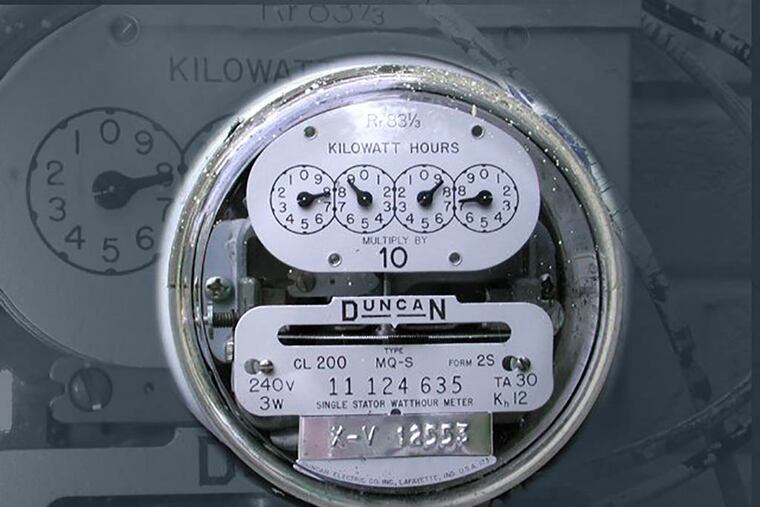FirstEnergy Solutions dropping Peco customers
FirstEnergy Solutions aggressively expanded in Pennsylvania's competitive electricity market three years ago, offering long-term fixed-rate deals that were attractive for residential customers.

FirstEnergy Solutions aggressively expanded in Pennsylvania's competitive electricity market three years ago, offering long-term fixed-rate deals that were attractive for residential customers.
Too attractive, evidently.
FirstEnergy recently mailed a wave of letters to Peco Energy Co. customers who signed up with FirstEnergy to supply their power, declining to renew their contracts when they expire in October. If the customers don't choose a new supplier, Peco will resume billing them at the current default rate, which is higher than what they currently are paying.
FirstEnergy did not disclose how many Peco customers would be affected. But earlier this year, FirstEnergy allowed a large tranche of Duquesne Light customers in Pittsburgh to lapse. The total number of Duquesne customers supplied by competitive power-generators dropped by 36,000, or 15 percent, in a few months.
FirstEnergy decided last year to reduce its exposure in retail energy markets, which had become too volatile and risky for its taste.
FirstEnergy Solutions, which is the competitive retail subsidiary of Akron power giant FirstEnergy Corp., said it had been unable to absorb all its costs during the severe winter of 2013-14, when wholesale power prices spiked dramatically. Demand from small customers shot up so much that FirstEnergy had to buy pricey power on open markets to meet its obligations.
"We didn't have all that risk built into the pricing," said Diane Francis, a company spokeswoman. "We actually had to go out and buy power for those customers."
Much attention last year was focused on individual customers with variable-rate contracts who were hammered by huge swings in their bills. But some power suppliers such as FirstEnergy, which had signed up hundreds of thousands of fixed-rate customers, also took a hit.
"You can lose an entire year's worth of [profit] margins in a few days of volatility," said Todd A. Shipman, a utilities analyst for Standard & Poor's Ratings Services.
Shipman said several large retail electricity suppliers have soured on the business as power prices have come down because of the low price of natural gas, a principal fuel for generators. Dominion Resources Inc. of Richmond, Va., last year sold its retail electric business to NRG Energy Inc. of Princeton, citing volatility.
"A number of energy companies are concerned we're in an extended period of low prices in the electricity industry, and it's time to get back to basics," Shipman said. Some companies, such as PPL Corp. of Allentown, spun off their competitive power-generation businesses to focus exclusively on operating regulated utilities, which provide steady, predictable earnings.
The Pennsylvania Public Utility Commission is monitoring the effects on retail customers, PUC spokesman Nils Hagen-Frederiksen said. He said FirstEnergy would be in compliance as long as it doesn't cancel customers' supply before their contracts expire.
Retail customers whose contracts expire are not at risk of losing power, Hagen-Frederiksen said, because they will automatically be supplied by Peco at the default rate.
In its letter to customers, FirstEnergy said it would waive early cancellation fees for customers who decided to switch to another supplier before their contracts expired.
FirstEnergy, which had 2.7 million retail customers in 2013, now serves about 1.9 million customers, Francis said. She said the company does not intend to exit the retail-supply business completely, and will continue to honor long-term contracts until they expire, including some customers who signed up for service until 2019.
"It was all about balancing our portfolio," she said.
As suppliers learn to reduce their risks, the lesson for retail customers is that it may become more of a challenge to find long-term fixed-rate deals that offer the big discounts to Peco's default rates than were available several years ago. But discounts are still available.
According to the PUC's website, papowerswitch.com, 57 electricity suppliers have offers posted for Peco Energy residential customers. Of those, 21 suppliers offer fixed-rate deals priced below Peco's current rate of 8.49 cents per kWh, which varies quarterly.
Eight suppliers have fixed-rate discounted offers for Peco residential heating customers, who are heavy users of power during winter months, and therefore benefit much more by securing a reduced price.
Under the state's rules for electric choice, customers are free to shop around for a competitive power supplier, including marketers of renewable power. Those customers who don't shop are supplied by Peco under a default rate, also called the "price to compare," which is based on the price Peco pays to secure the power.
In Pennsylvania, about two million customers, or 36 percent, are signed up with competitive suppliers. They account for 66.5 percent of the power consumed.
215-854-2947 @maykuth